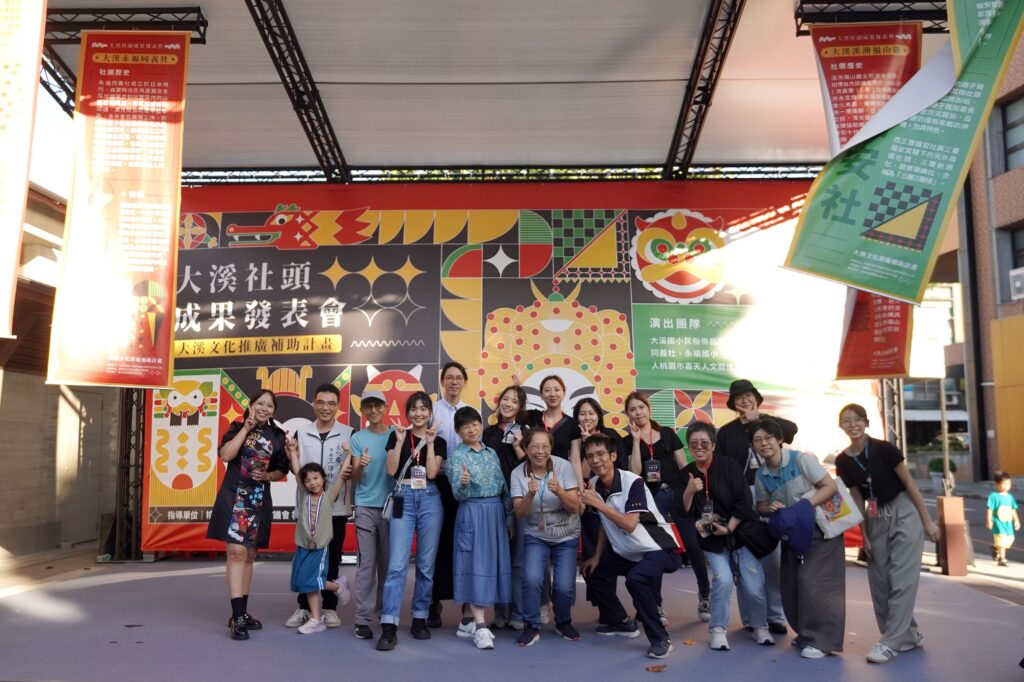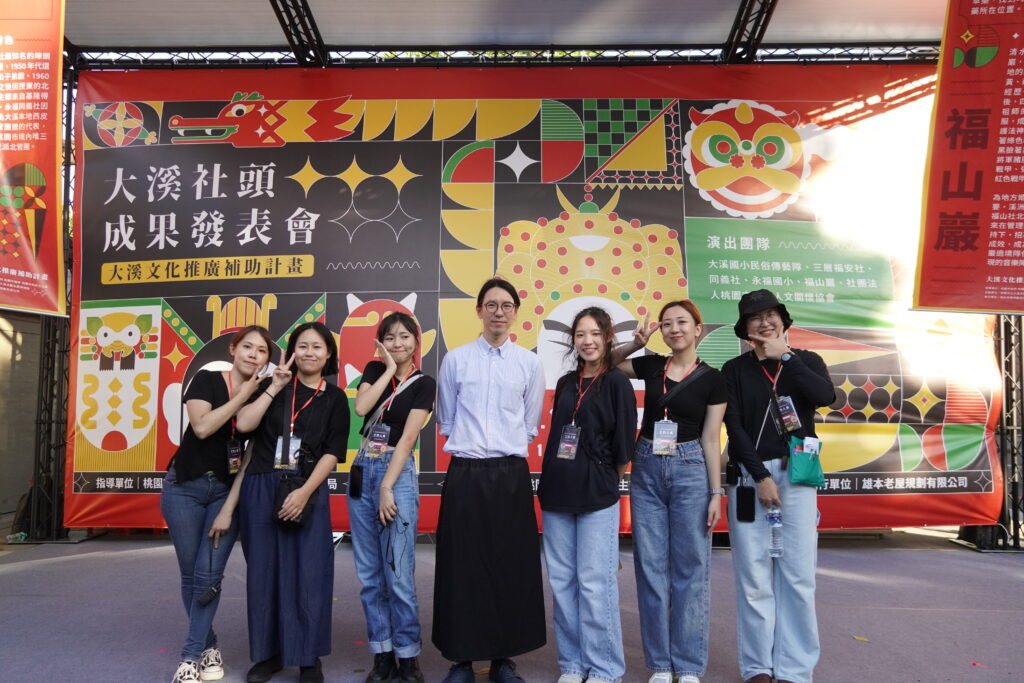Daxi Social Troupes Achievement Presentation Spectacular Debut:
10/19 ꜱᴀᴛ.
First recorded in the Taiwan Daily News in 1915, the “Welcoming the 24th June” ritual in the Daxi district has evolved into a signature folk tradition. It not only gives tangible form to local faith but also reinforces community bonds, symbolizing Daxi’s transition from a frontier settlement into an established society. Yet, with social change, daily life has moved away from religious focus, and troupe culture is now largely the domain of the elderly, making folk art transmission an urgent contemporary challenge.
In response, the Daxi Wood Art Ecomuseum has both elevated public interest via exhibitions and festivals and offered hands-on support, partnering with local troupes and schools to conduct traditional arts training. On October 19, the X-Basic Planning team—acting as a cultural partner to the Wood Museum—gathered seven local troupes and school teams for a vibrant folk arts performance at the 624 Story House plaza.

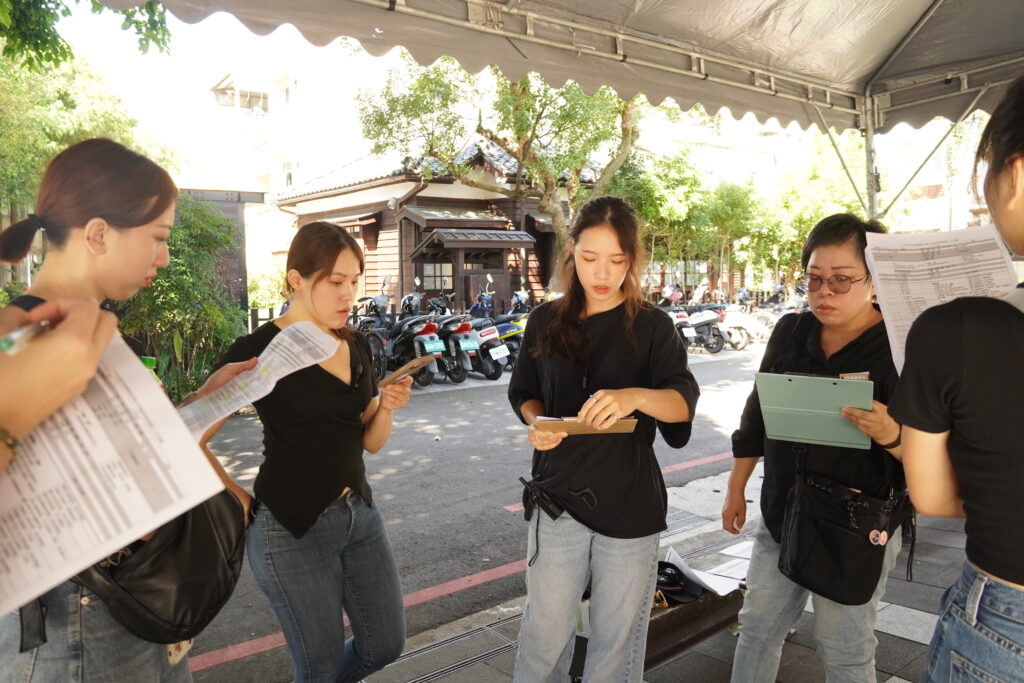
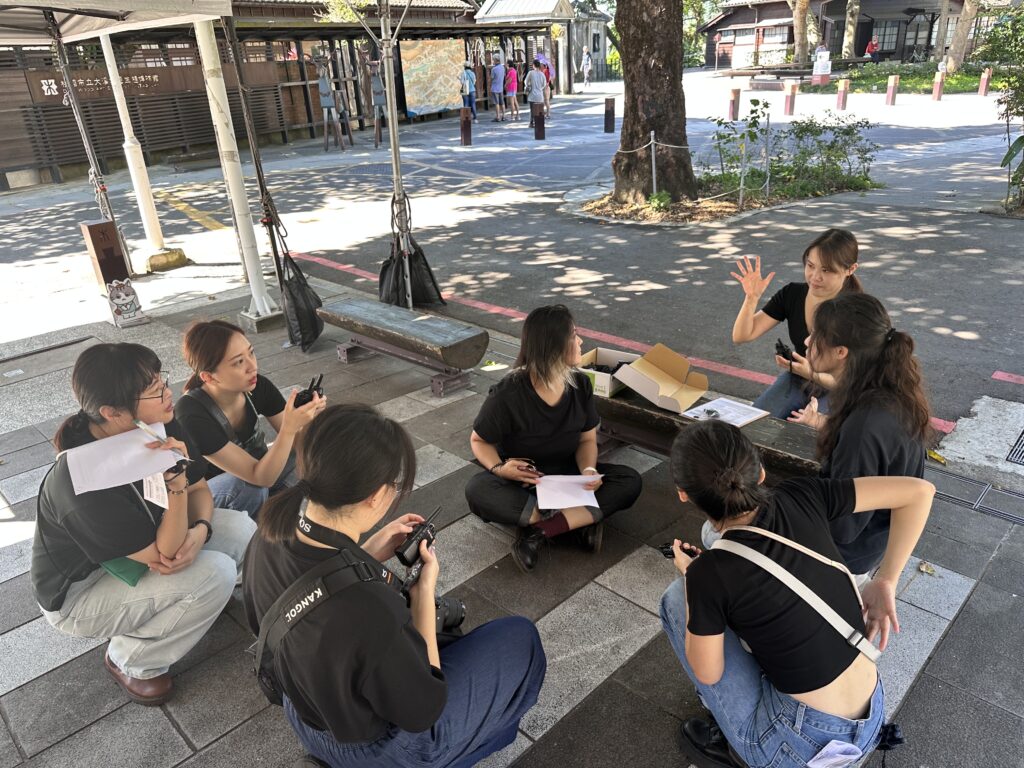
Daxi Folk Lion Dance Team
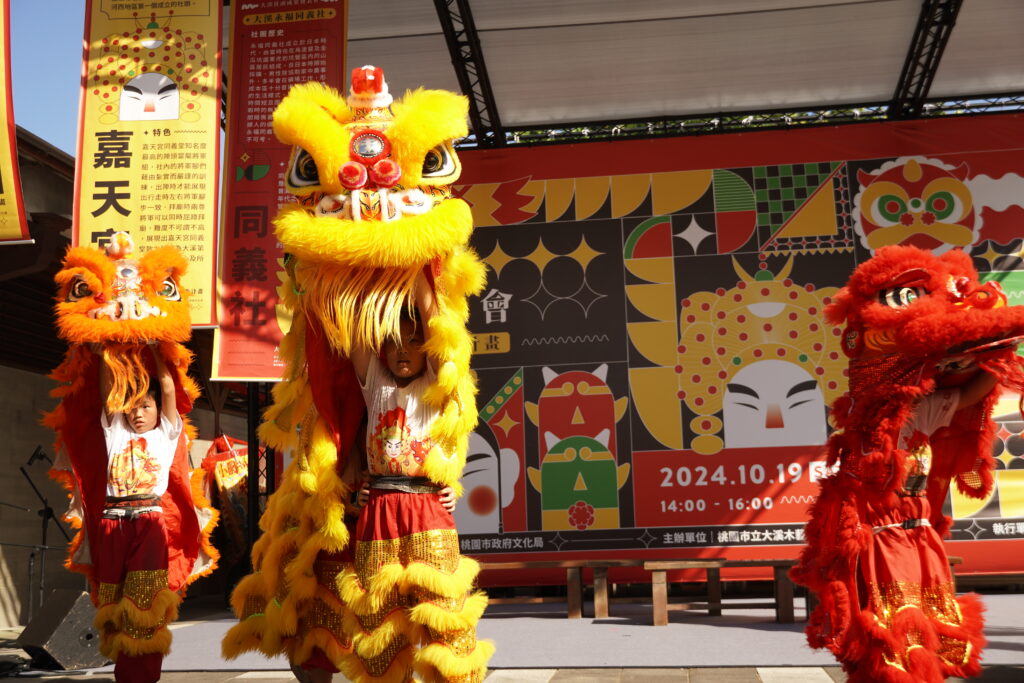
The Daxi Elementary School Folk Lion Dance Team opened the event with a dynamic performance. The children’s nimble footwork made the ornate lion heads—featuring single horns and mirrored surfaces—glisten, while the expressive, moving parts of the lions animated a tale of encounter, conflict, and ultimate reconciliation. The team was established by Director Hong Shunfu of “Zhenfeng Society,” inheriting the Heshan lion system from the Southern lion tradition. Through educational guidance, the younger generation can experience folk culture in their daily lives.
Three Story Fu’an Society
Next was music from the Three Story Fu’an Society. Established in 1921 by local farmers devoted to the Five Grain Emperor, the society was inactive during the 1980s but has since been reorganized and remains active. The repertoire featured “Spring Series,” a common ceremonial transitional piece from a seasonal set, as well as the medleys “Golden Gourd” and “Fire God Incantation,” which must be performed together. Despite its revival, the society lost numerous Beiguan scores during its hiatus. Its members are now committed to preserving the remaining pieces and advancing the art of Beiguan music.
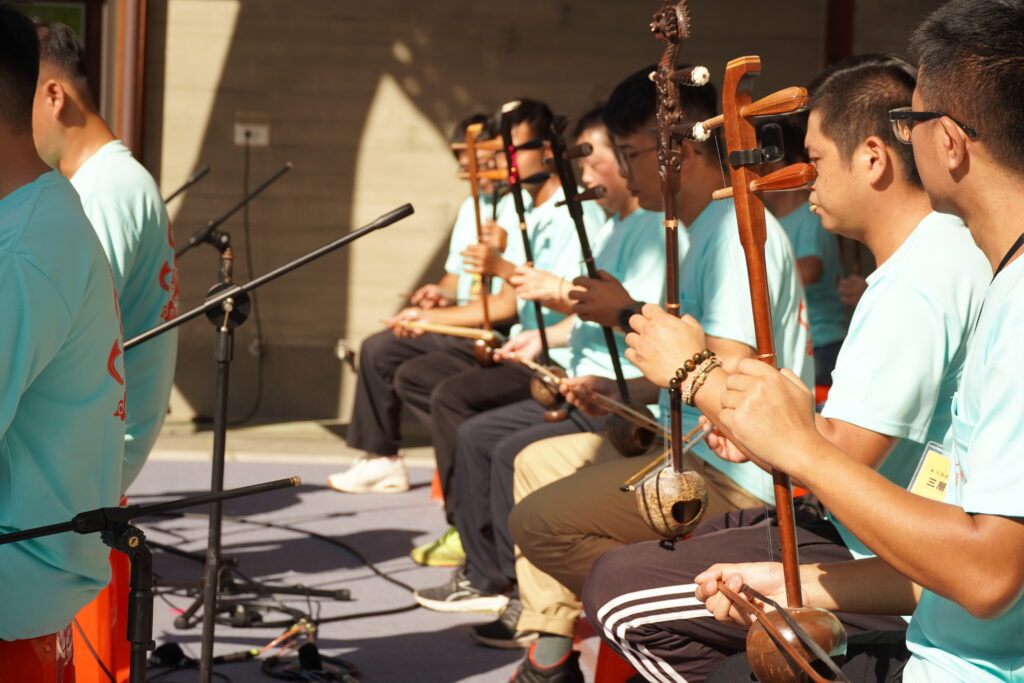
Yongfu Tongyi Society
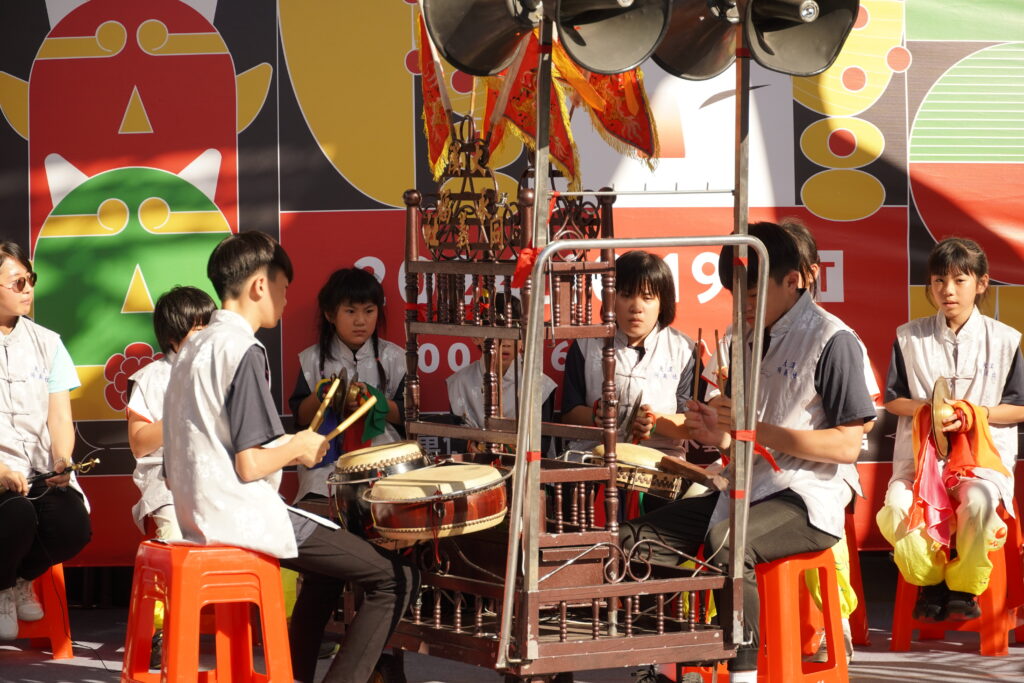
Beiguan music offers more than an auditory feast; it is a dynamic medium for bringing operatic stories to life. For their piece Western City, the troupe portrayed Zhuge Liang’s famed “Empty Fort Strategy” victory over Sima Yi from the Three Kingdoms era. Founded in 1935, the Tongyi Society evolved from a tea farmers’ group to a half-mining, half-farming operation. Its accompanying Fulu school Beiguan group ceased activities when the local mining industry faded. The pivotal change came in 1988 with the instruction of masters Chen Wan-I and Hsu Chao-wang, which established them as Daxi’s distinctive Xipi-school Beiguan group.
Jiatian Temple Tongyi Hall
In the “Divine Generals Setting Up Camp” ritual, the Jiatian Temple Tongyi Hall showcased impeccable footwork. Their synchronized movements, from marching to intricate salutations and bows, were a masterclass in precision and order. The Jiatian Temple Tongyi Hall—the oldest society in Hexi and a main temple of the Heavenly Holy Mother—is known for its well-drilled general formation, which displayed its complete dignity in this achievement showcase.
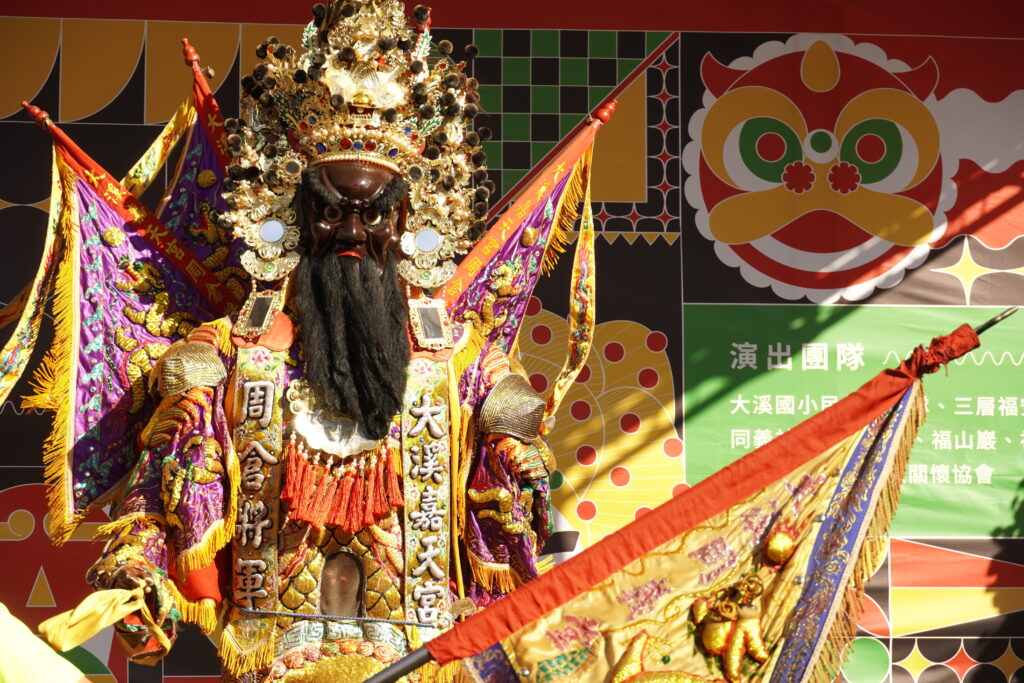
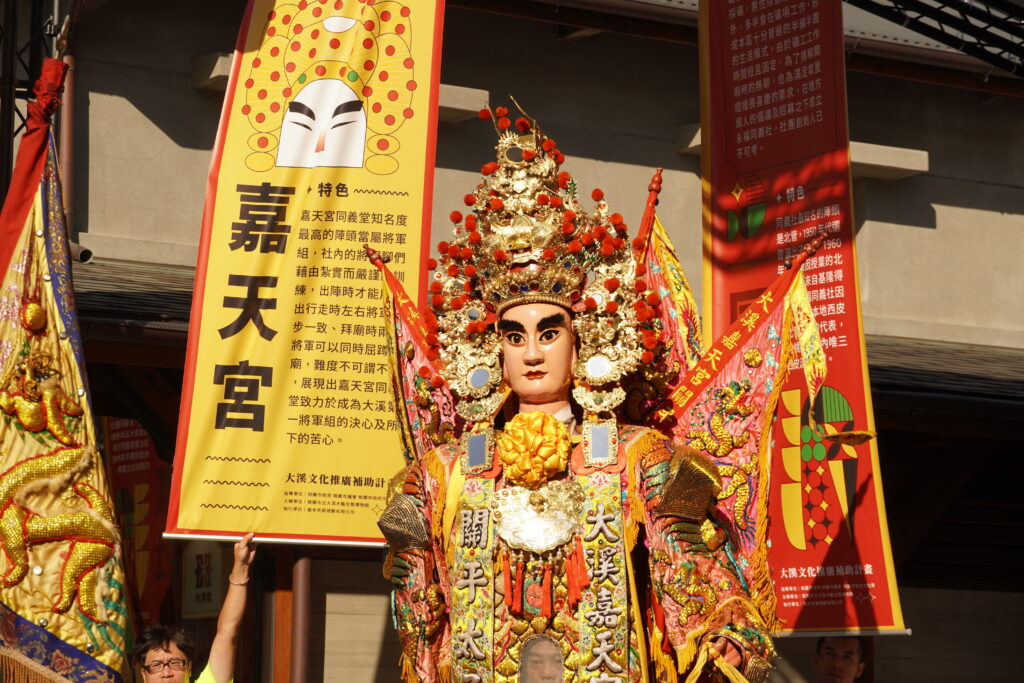
Xizhou Fushan Temple
The ensuing performance of “One River Wind” continued the theme of divine might. This piece is commonly played to underscore the rallying of righteous armies. The performing group Xizhou Fushan Temple, a local religious center, originally offered spiritual and physical solace to ancestors through Master Qingshui’s divination. During the Japanese rule period, it established the Yihe Group, which encompassed Taiwan’s Lion Dance and Beiguan arts, later developing into the Fushan Society. In 2004, Xizhou Fushan Yan first joined Lord Guan’s grand procession with its divine generals.
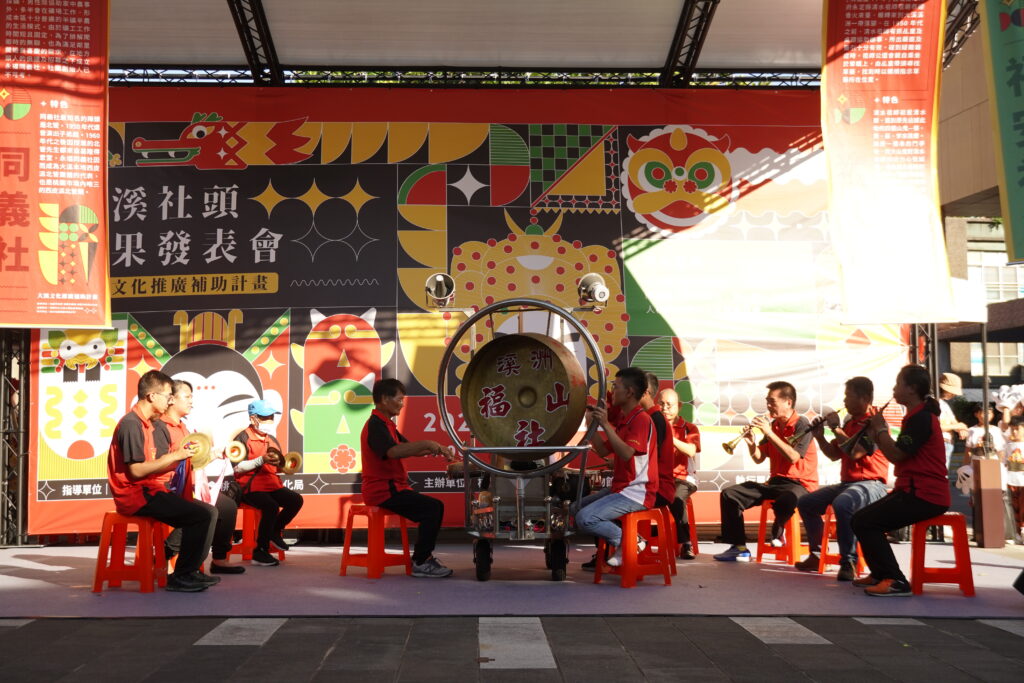
Cute Divine Giants of Daxi Elementary School
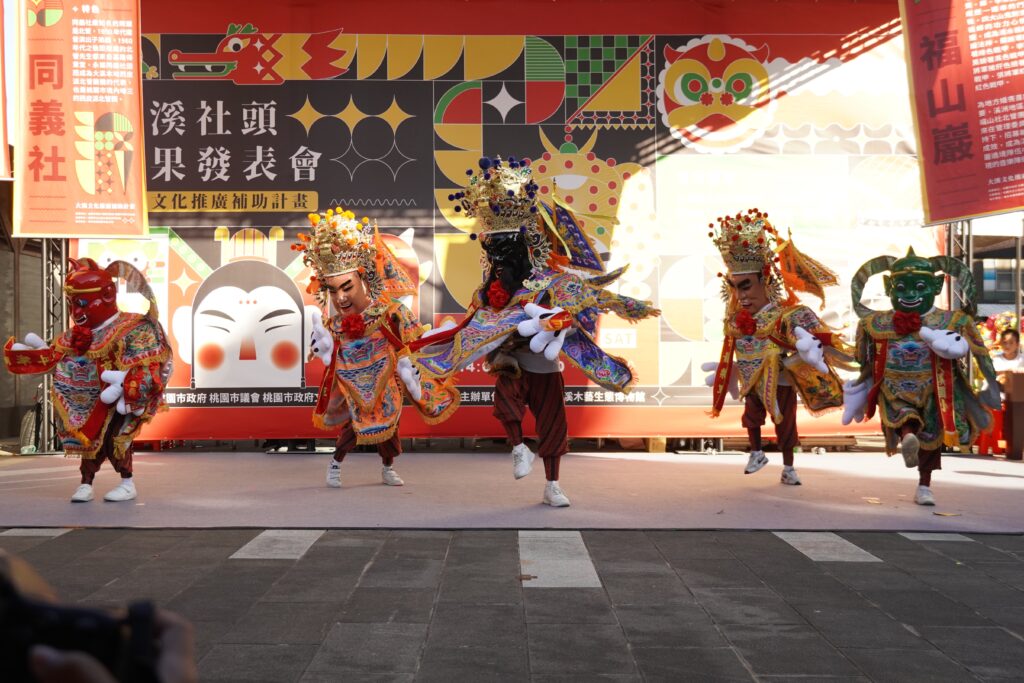
Answering the majestic presence of the divine generals comes the Cute Divine Giants from Daxi Elementary School, charming the audience with its friendly and whimsical design. By fusing traditional belief with innovative music and design, this performance uses the charm of children’s dance to explore a fresh, dynamic future for local culture. Established in 2012 by Daxi Elementary School and the Daxi Township Office, the Cute Divine Giants connects with youth to foster a deeper commitment to preserving folk traditions.
Dragon Team of Yong’an Elementary School
The Dragon Team of Yongfu Elementary School delivered a powerful finale. To driving drumbeats, the children performed a series of techniques—from water rolling to dragon bundling—animating the dragon into a sleek, agile form that seems to fly through clouds. The team’s skilled movements and coordination stem from the school’s dedication to tradition. Beyond training with the Daxi Gongyi Group, they frequently perform at neighborhood events, connecting the school with local community culture.
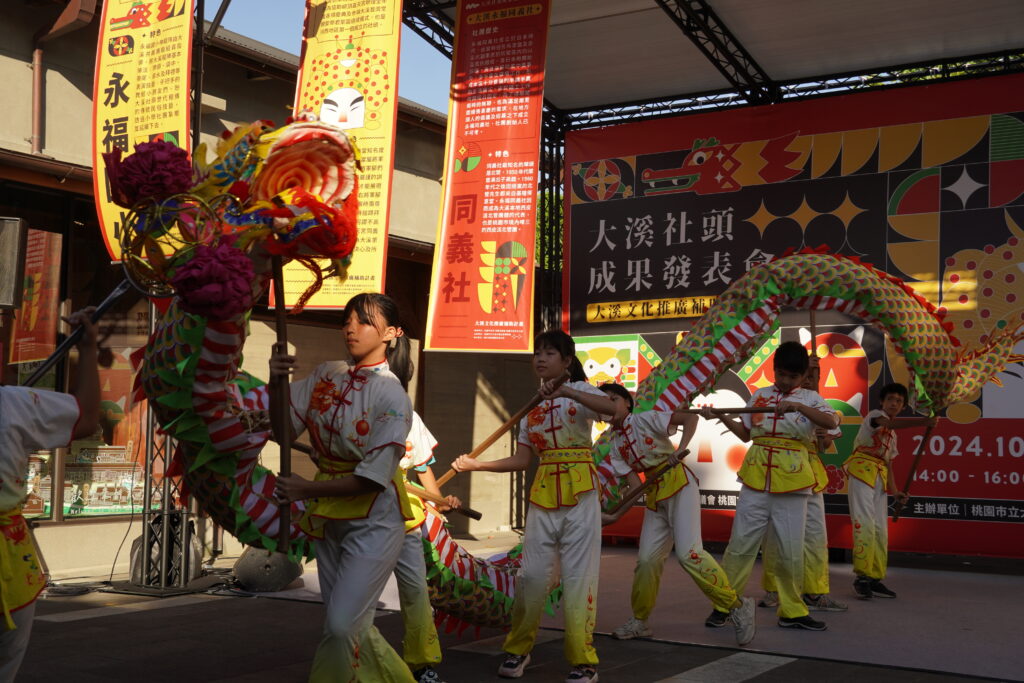
Though Daxi’s community groups—diverse in their origins and deities—have evolved since the Qing Rule Period, they unite every year for Lord Guan’s birthday. This collective celebration ensures the transmission of folk arts, filling the city with a rich, warm cultural heritage. X-Basic Planning serves as Daxi’s cultural guide, using historical research to strengthen the ties between ceremonial rites and local identity, while supporting communities in reimagining the future of folk arts.
